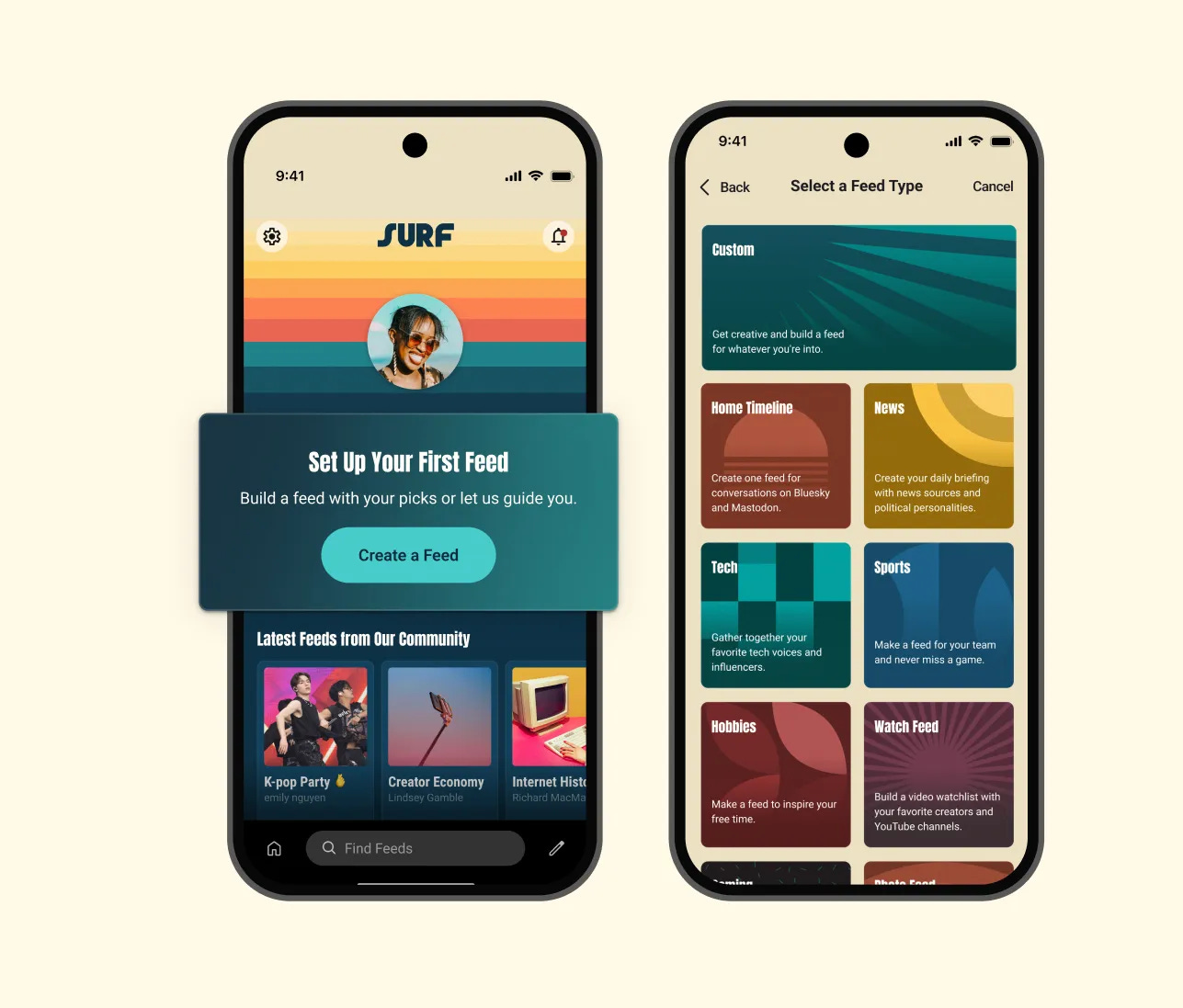Cut Through the Noise: Can Surf Curate a Better Way to Learn?
A Promising Look Into The Evolution Of Social Media
In an increasingly noisy digital world, finding reliable information and fostering meaningful connections can feel like a monumental task. For educators and students, this challenge is particularly acute. Enter Surf, a new project from Flipboard founder Mike McCue, described as a "social web browser." While not explicitly designed as an education tool, Surf's core concepts and features hold fascinating potential for transforming how we access, curate, and engage with learning content. Mike speaks about decentralization of social networks and other groundbreaking ideas on his podcast Dot Social.
At its heart, Surf aims to democratize access to information. McCue emphasizes that his goal is to provide a "window into an ecosystem" of content connected via open protocols like ActivityPub (used by Mastodon, Threads, and even Flipboard itself), AT Protocol (powering Bluesky), and the ever-reliable RSS. Imagine a single entry point to "every podcast, every YouTube channel, every newsletter," and countless posts from diverse platforms, all accessible without needing to jump between siloed apps. For education, this could mean a vastly expanded and more easily navigable universe of learning resources.
Courtesy of Flipboard.com
Cutting Through the Noise: Curation as a Superpower
One of Surf's standout features is the ability for users to create and share "feeds." In an "age of overabundant speech," McCue notes the critical need for tools that help us "find the good stuff." Feeds in Surf are a powerful mechanism for this, allowing users to aggregate content from various sources and protocols.
Think of the educational applications:
Educators as Curators: Teachers could meticulously craft feeds of relevant articles, academic papers, videos, podcasts, and discussions tailored to their curriculum or specific student needs.
Student-Led Discovery: Students could build their own feeds for research projects, exploring diverse perspectives and sources on a given topic.
McCue describes this as "human curation powered by AI," where AI might assist in filtering content within a feed (e.g., for specific topics), but the initial selection and trust lie with the human curator. Critically, a "sources tab" allows users to see exactly where content in a curated feed originates, promoting media literacy and source evaluation – essential skills in any learning environment.
This human-centric approach is also positioned as a defense against "AI slop" – the proliferation of low-quality or fabricated content generated by AI. By prioritizing content "from genuine people that you follow" or from trusted curators, Surf aims to elevate reliable information. For educators guiding students through the often-murky waters of online information, this focus on trusted sources is invaluable.
Building Learning Communities in the Open
The open social web, as envisioned by Surf, isn't just about content consumption; it's about connection and community. The platform allows people to gather around shared interests, creators, or even specific academic disciplines. Examples like Rudy Fraser's "Black Sky" community or a dedicated "science" feed (where participants must prove they are scientists to contribute) showcase the potential for creating safe, moderated spaces for learning and discussion. Imagine dedicated feeds where students and experts can collaborate, share insights, and build knowledge together, free from the distractions of mainstream social platforms.
Empowering Educational Content Creators
Educators who create and share their own learning materials online could also benefit. Surf and the broader open social web aim to provide more avenues for discovery for publishers and individual creators. The goal is to support various business models – ads, paywalls, memberships – allowing educational creators to sustain their work and reach a wider audience, fostering a more vibrant ecosystem of open educational resources.
Personalized Pathways and an Open Ecosystem
The ability for users to create their own personalized feeds aligns well with the push for more individualized learning experiences. Students could tailor their information intake to match their specific interests, learning pace, or research needs.
More broadly, Surf champions an open ecosystem over the "walled gardens" of proprietary platforms. McCue hopes Surf can be the "Netscape" of the open social web, making this decentralized world more approachable and discoverable. For education, a more open web could mean greater innovation, easier sharing of resources, and less reliance on closed, often costly, educational technology platforms.
The Horizon for Education
While Surf is still in its early days (currently in a limited beta), its fundamental principles – democratized access, human-powered curation, community building, and openness – resonate deeply with the core values of education. It’s not a direct replacement for formal schooling, but it offers a glimpse into a future where learning resources are more accessible, trustworthy, and interconnected. As educators and learners, watching how tools like Surf evolve and how they might be harnessed for educational purposes will be a journey well worth following.
Work Cited:
(2025). Retrieved May 25, 2025, from Youtube.com website:
Podcasts | TWiT.TV. (2025). Retrieved May 27, 2025, from TWiT.tv website: https://twit.tv/shows?shows_active=1






